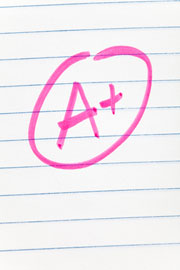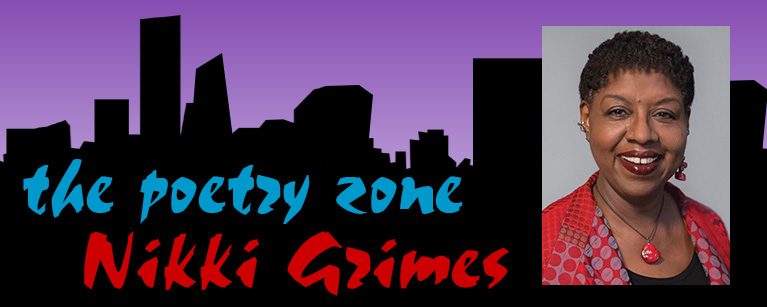 While channel surfing the other day, I came across a reality show about child beauty pageants. A four or five year old contestant was asked what she wanted to be when she grew up, and her answer was “famous.” Her parent seemed pleased with that response, never once suggesting to her daughter that, perhaps, she should identify a career or profession for which she would like to be known. Being pretty and being known for anything seemed to be the point of it all. I myself found the child’s answer wince-worthy.
While channel surfing the other day, I came across a reality show about child beauty pageants. A four or five year old contestant was asked what she wanted to be when she grew up, and her answer was “famous.” Her parent seemed pleased with that response, never once suggesting to her daughter that, perhaps, she should identify a career or profession for which she would like to be known. Being pretty and being known for anything seemed to be the point of it all. I myself found the child’s answer wince-worthy.
To be sure, I’ve met many a child, and not a few adults, whose chief goal in life was to achieve celebrity. They clearly crave the status of being famous for being famous, never mind identifying and honing a talent, or learning a trade, or developing craftsmanship in some chosen field of endeavor. And we won’t even discuss the possibility of pursuing a career in higher education. No. Fame’s the thing.
What’s all that got to do with the push to publish? Everywhere I go across the country, visiting schools and libraries, I encounter young people whose sole focus is on getting published. Note, they are not focusing on becoming good, let alone great writers. They simply want to be known for their writing, and that acknowledgement or fame, if you will, comes in the form of publication.
There’s certainly nothing objectionable about wanting, or needing, validation for one’s work, but that assumes one has actually worked. That is to say, one has striven to hone one’s craft over a reasonable period of time, through study and practice. In the case of a person interested in pursuing publication, it is assumed that one has first done the hard work of sharpening language skills, studying a chosen genre and mastering that singular skill of inestimable value, revision. Said person knows what it is to read, read, read and to write, write, write. (I love Jane Yolen’s answer to questions about the secret to writing a book: Butt in chair!) Once a young writer has done all of the above, I think he or she is ready to pursue publication. But, it appears I would be in the minority.
Nowadays, as early as elementary school, I hear students being referred to as “young authors.” I cringe every time I hear the phrase. Don’t get me wrong. I understand the desire to give children a sense of success, and desk-top-publishing their work may achieve that, in the short term. However, that success won’t be real unless it is earned.
I, for one, would like to see a move away from the push-to-publish model, a shift from “How can I get published?” to “Am I ready to publish?” That shift has to begin in the classroom.
We all know teaching is one of the world’s toughest and least-appreciated jobs. And we understand that most teachers are doing the best they can, despite being hamstrung by requirements to teach to the test. So the last thing I want to do is criticize. But might I gently suggest that there are ways to encourage students to improve their writing that don’t begin and end with publishing? After all, not every child will be inclined to dig deep to do the hard work of revision if he knows he can slap anything on paper and get it published by his teacher or school librarian. Why not make publication an end-of-year goal that students must strive for? Meanwhile, here are a few ideas to keep them writing, along the way. Obviously, since I am not in the classroom myself, I won’t know the best ways to apply these ideas, but those of you who teach will. I’m just throwing my thoughts out there for you to consider.
Challenge students with competitions. Include winners—and not everyone is a winner, otherwise the word would have no meaning—include winners in an end-of-year school publication. Create categories for recognition: Voice, Originality, Descriptive Language, Most Challenging Vocabulary, etc. No one child will achieve in all categories, but several children will achieve in one or more.
Assign students the task of researching magazines and journals that publish work by juveniles, and then encourage those students whose writing merits it to submit their work.
Display the best writing in class. Invite the best writers to read their work out loud. Make this a scheduled time so that students have ample time to prepare work for sharing. I know one teacher who has a poetry chair in her classroom. Once or twice a week—I can’t remember exactly—a student gets to sit in that chair and read one of his or her favorite poems. There’s a great deal of pride attached to the experience of getting to sit in the poetry chair, and students look forward to the opportunity. The same idea could be applied to a student’s own writing. Why not? (Here, again, categories might be useful. Students with different writing strengths could have those strengths honored, week-to-week.)
Okay. Those are some suggested “Dos.” Here are a couple of suggested “Don’ts” for teachers and parents, alike.
Every child can learn the basics of poetry, but not every child is a poet. Please stop telling them that they are. I know some of you will gasp at this notion, but not everyone who learns to draw has the potential to be Picasso. He is encouraged to draw, anyway! I’m no Shakespeare, but my teachers managed to encourage me to write despite that fact. In the process, I discovered my own voice. Teach poetry? Absolutely! But don’t label a student a poet unless he tells you he is. And once he does, challenge him to develop his skill. Guide him to poetry collections to read so that he can discover what is possible in his own work.
Stop seeking mentors for your preteen child who wants to be a writer one week, but will decide to be a basketball player the next. I was seventeen before I sought out my first mentor, and I was pretty hard-core. I’d already begun publishing my work in literary journals, and I sought out a mentor on my own. Most kids, even at 17, aren’t ready for that level of commitment. If they decide they want to make writing their life’s work, they’ll gravitate toward a mentor on their own, when the time is right. Don’t force the issue. This is a tough career, with massive amounts of rejection. One should not set out on this path until he or she has reached a solid level of maturity.
Let’s put publication aside, for a moment and talk about the work ethic, in general. It’s difficult to sort out, but somehow, in the last generation, we’ve lost a respect for, and forgotten about the satisfaction that comes from hard work. We’re all about instant gratification, now—instant everything, in fact. What about the bone-strengthening impact of achievement? What about the self-esteem that derives from working towards, and then achieving, one’s goals? We’ve gotten away from that and our fascination with the new technologies hasn’t helped. We no longer stop to consider whether or not we should do a thing. We only ask whether or not we can, and that definitely applies to publishing. Sigh.
 I had a great English teacher in high school. Her name was Evelyn Wexler, or Mrs. Wexler to me. Mrs. Wexler encouraged my writing, and made sure I was familiar with the important African American authors of the day. But one thing Mrs. Wexler never did was give me an easy A+. She made me work for it. I was already quite a good writer, but she wanted me to strive to be better, and if I didn’t challenge myself to do so, she would not reward me with an A+ no matter how much better my essays or book reports were than everyone else’s in class. She was pushing me to be my best, not the best. It was a great lesson for me to learn.
I had a great English teacher in high school. Her name was Evelyn Wexler, or Mrs. Wexler to me. Mrs. Wexler encouraged my writing, and made sure I was familiar with the important African American authors of the day. But one thing Mrs. Wexler never did was give me an easy A+. She made me work for it. I was already quite a good writer, but she wanted me to strive to be better, and if I didn’t challenge myself to do so, she would not reward me with an A+ no matter how much better my essays or book reports were than everyone else’s in class. She was pushing me to be my best, not the best. It was a great lesson for me to learn.
Throughout high school, and beyond, I worked long and hard to create work that was worthy of publication. The result? When I finally saw my work in print, it was cause for celebration. As for the rejection along the way, it made my ultimate success all the sweeter.
I’m not suggesting that young students need to experience rejection in the classroom, but they need not be handed the reward of publication so easily, either. In the long term, it will not serve them well.
I write for a living, and it would be easy enough for me to dash something off and publish it on my blog with little forethought. But I don’t, and there’s a reason for that. As a student, I was challenged to make sure my writing was the very best that it could be before I turned it in. Thanks, Mrs. Wexler. I’m still listening.



One Response
Standing ovation!!
Tears in my eyes. You’ve said what has needed to be said and said it
perfectly. I worry only about how many teachers and parents actually know what you are talking about.